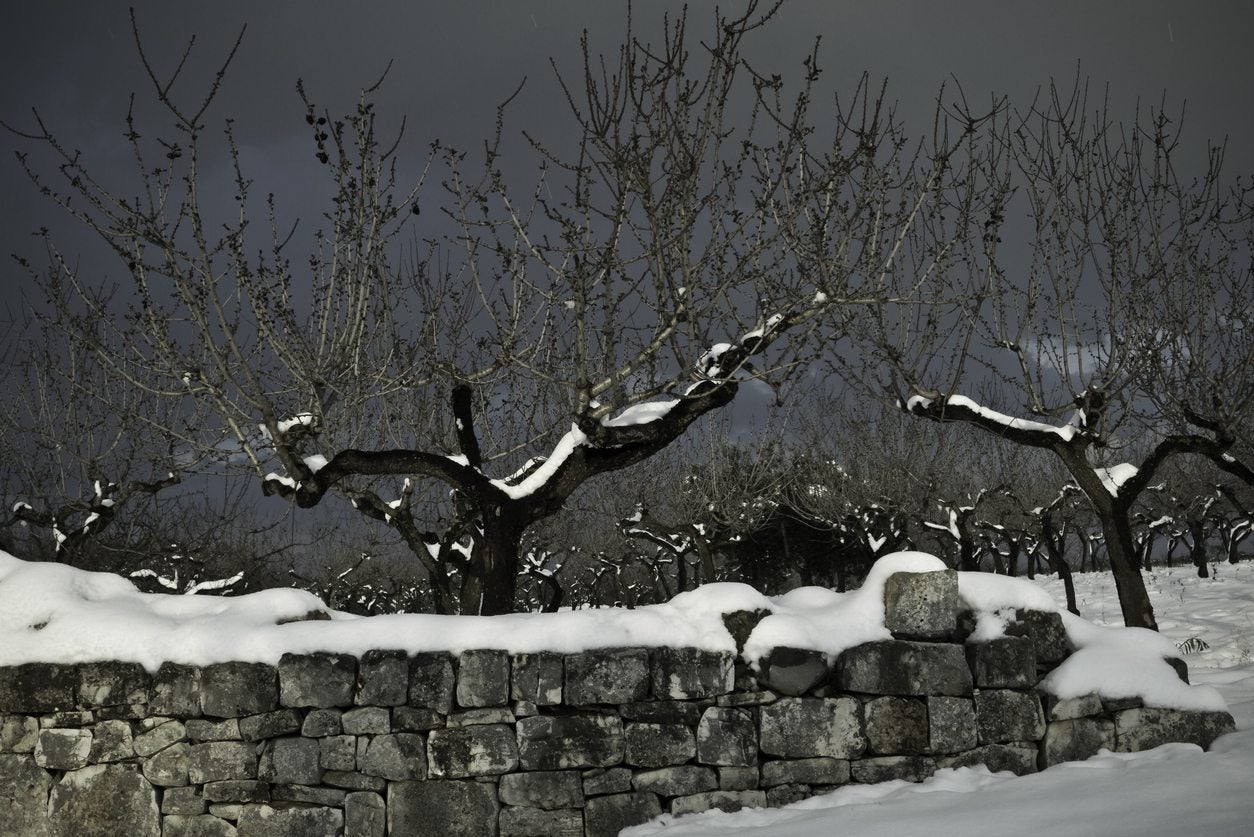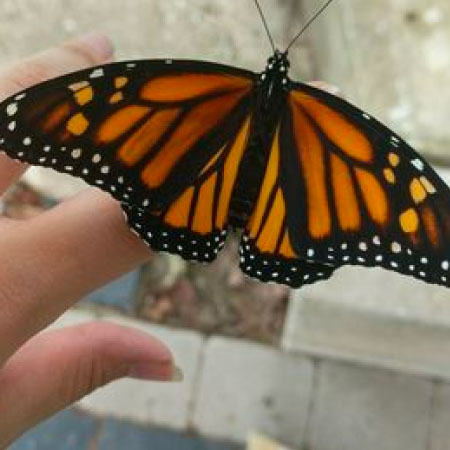Almond Winter Care – What To Do With Almonds In Winter


Sign up for the Gardening Know How newsletter today and receive a free copy of our e-book "How to Grow Delicious Tomatoes".
You are now subscribed
Your newsletter sign-up was successful
With the rising popularity of homesteading, home landscapes now incorporate trees and shrubs that can pull double duty. Functionality has become just as important as beauty in our garden spaces. With blooms as early as January in mild climates, almond trees are making their way into the landscape more often as reliable double duty plants, providing homeowners with early spring blooms, healthy nuts, and an attractive landscape plant. Read on for tips on what to do with almonds in the winter.
Almond Winter Care
Closely related to peaches and other stone fruit trees in the Prunus species, almond trees are hardy in U.S. hardiness zones 5 to 9. In the cooler regions of their range, however, the early spring blooms of almond trees may be susceptible to bud damage or loss from late winter frost. In these locations, it’s recommended that you use later blooming varieties of almond to avoid frost damage. In warmer regions where almonds are grown, they may only have a short, semi-dormant period in which almond winter care chores should be done. Pruning and shaping is generally done to almond trees in winter between December and January. Many almond growers prefer to grow almond trees in a very specific, open, vase-like shape. This shaping/pruning is done during almond’s winter dormancy, starting the first growing season. Three to four main branches, which spread up and outward, are selected to grow as the first scaffold branches, and all other branches are pruned out. The following year, certain branches growing out from the first scaffold branches will be selected to grow into secondary scaffolding branches. This form of selection pruning is maintained year after year, always keeping the center of the tree open to air flow and sunlight.
What to Do With Almonds in Winter
Yearly maintenance should be done in late autumn or winter to trim out dead or damaged wood, and clear away garden debris and weeds. Leaves, nuts, and weeds left around the base of almond trees can harbor pests and disease, and also provide winter nests for small mammals which may chew on tree trunks or roots. Disease pathogens will oftentimes overwinter in dropped almond foliage and twigs which are left on the ground through winter, while borers and worms find perfect winter hideouts in fallen fruit and nuts. If left there over winter, the rapidly increasing temperatures of spring may lead to a sudden infestation of pests or disease. Almond trees are susceptible to a number of pests and diseases. Many of these problems can be avoided by implementing the spraying of horticultural dormant sprays into your almond winter care regiment. Preventative fungicides can be sprayed from autumn to early spring, depending on your region. Early spring applications are best for cooler climates with killing frosts.
Sign up for the Gardening Know How newsletter today and receive a free copy of our e-book "How to Grow Delicious Tomatoes".

Darcy is a former contributor to Gardening Know How. She is a professional landscape designer and gardening writer with experience in plant sales. An avid gardener, Darcy has a passion for sharing practical tips to help others grow.